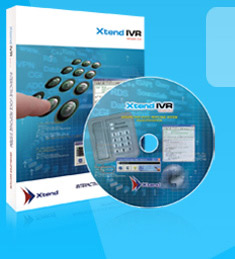
Rapid IVR development toolkit with support for Analog/Digital/VoIP telephone lines to implement an automated call answering system in an organisation.
Learn MoreRail transport is a major form of public transport in many countries all over the world. One main reason for this is that rail transport makes highly efficient use of space. In a given amount of time, a double-track railway line can carry many times more passengers or freight than a four-lane road.
Millions of people use trains as regular transport in Asian countries like India, South Korea, Japan, China, and in European countries. But, when we take the case of United States, especially outside New York City, rail transport as a form of public transit is very rare. Amtrak is the only nationwide passenger rail system in the country.
Commercially, world rail transport has had a mixed record. Most rail systems, including urban rapid transit - metro/subway systems, are highly subsidised and have never or rarely been profitable; however, their indirect benefits are often great.
Similarly, passenger railway in all countries is fully dependent on government and their subsidies. As a result, levels of rail transport have in some times and places been reduced in order to save money. Also, this has resulted in low customer satisfaction in the support and services provided by the railways.
The problems faced in the present scenario can be solved by the deployment of an Interactive Voice Response (IVR) system to automate the ticket status information for railways. This can easily replace the labour-intensive manual activities. The new system can streamline and standardise the ticket status information process at a substantial cost savings. This like a normal telephone enquiry system facilitates enquiries relating to reservation availability and current status of reserved tickets.
IVR based automated ticket status information systems using ordinary phones are becoming very popular and affordable these days. Instead of relying on word of mouth that is quickly out-of-date and expensive, automatic phone messaging lets you contact the right point and get the most accurate, reliable and latest information instantly from your seat!
Let us assume that a railway authority has decided to automate the Ticket Status Information System in their country. An IVR system can be used here very effectively and efficiently.
A person can easily retrieve the latest status information of the reserved tickets using an IVR system. When a person dials the number from an ordinary telephone, he is automatically taken into the IVR system because the telephone line is connected directly to it. After the welcome message, the system will first ask the caller to key-in his PNR number printed on the left-hand top corner of the reserved ticket. Now, the caller has to enter the train number and the total number of persons mentioned on that ticket for verification/confirmation when prompted by the IVR system. Then the system will provide the latest updated status of the reserved tickets to the caller. When the caller exits from the system, he/she will be greeted with a 'thank you' message.
The caller can anytime get the latest updated status of the reserved tickets by keying in the PNR number allotted to him/her. Customizing the IVR system can also incorporate provision for many other features like reservation availability, cancellation of tickets, etc. Adding the multi-lingual features can solve linguistic problems.
Ticket Status Information System can now be accomplished quickly, efficiently and cost effectively using the latest and most modern IVR technology from Xtend Technologies.